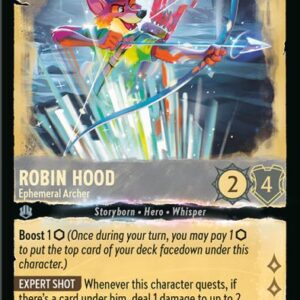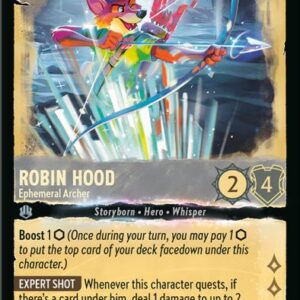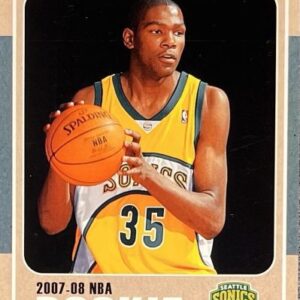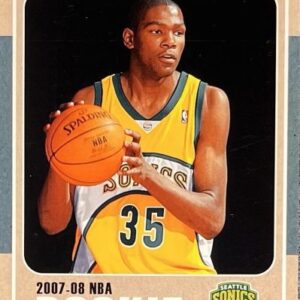In an age where trading cards are revered as much for their artistry as for their historical significance, some relics from the 1990s still manage to steal the spotlight effortlessly. This is precisely the glowing legacy of Michael Jordan’s 1995–96 Flair Hot Numbers insert card, known to make an entrance even before you catch sight of its protective slab. Distinctly bold and raucous, this card embodies the grandiosity of its era with an audacious design that shuns subtlety in favor of a dazzling spectacle.
At the heart of its allure lies the layered lenticular printing—a technique that flirts with light like a shimmering scoreboard. When tilted, the card exhibits a vibrant dance of numbers that mesmerizes instantly, much like the man it celebrates. Fans of the sport will recall that this framed beauty debuted during a zenith season for the Chicago Bulls, a period when Flair was making strides to rival the emerging chromium technologies with its premium approach to card making.
Described by Beckett’s reliable guide, Hot Numbers is a special 15-card insert line distinguished by its three-dimensional allure, the very embellishment that made it a coveted prize among packs. Collectors who once dreamt of pulling one from the wild understood it was a Herculean task; stumbling upon a Hot Numbers card was a one-in-36 chance whisper to those feverishly tearing through boxes—an odds game that bestowed legendary status upon every find.
The scarcity and photogenic audacity of the Jordan card have cemented its reputation in a 90s landscape teeming with unforgettable inserts. The card’s premium pull status hasn’t waned today, standing as a monument to 90s bravado, embodying that decade’s uninhibited energy and style.
In the bustling marketplace, a PSA 10 graded version is treated as a headline act. Recent auctions illustrate a simmering demand, with sales hovering near four thousand dollars. The card has even breached those numbers at times, with Card Ladder documenting a striking sale near four thousand eight hundred in mid-summer. This fluctuation underscores a simple truth: when a pristine copy surfaces, collectors ready their wallets.
A closer examination reveals the condition to be a major factor driving its market value. The lenticular surface may mask faint imperfections, while the foil-heavy facade allows edge wear to subtly escape notice unless under the right light. Buyers, therefore, rely on trusted sellers, angled images, and current market comparisons, rather than sheer optimism, to gauge the card’s worth. When a card looks impressively sharp and is well-centered, it naturally attracts robust bidding, gravitating around that four-thousand-dollar mark with little fuss.
Easily recognizable, the design remains its strongest suit, continuing to captivate almost three decades since its launch. The aesthetic is rich with 90s nostalgia, avoiding the clichés of hologram gimmicks yet delivering perceptible motion. Spotting this stunner across a crowded showroom is no challenge—its geometry and kinetic numbering create a style that no other Michael Jordan insert can claim. Collectors from the 90s feel a deep connection to its intrinsic charm, while newer enthusiasts, brought to the hobby by tales of Jambalaya and PMG glory, appreciate Hot Numbers as a more accessible entry point that still holds that nostalgic flame.
The surrounding context of its creation adds an enriching layer. Flair, during that period, endeavored to elevate the tradition of paper cards by adding heft and a polished finish. Hot Numbers epitomizes this endeavor, proving thrilling without relying on refractive finishes or complex die-cuts. This card was and still is the piece you excitedly show to friends outside the collecting circle due to its bold graphic design, transcending the simplistic ‘photo-on-cardstock’ tableau.
For passionate collectors, this card inhabits multiple niches. It stands alongside other iconic 90s inserts like New Heights and Scoring Kings, slots into any meticulous Jordan showcase where it brags a bit more ostentatiously than photogenic base cards, and fits comfortably within a set build of the 15 Hot Numbers—a venture both challenging and rewarding.
Auction values have maintained a general consistency this year, with completed sales for PSA 10s consistently signaling the four-thousand-dollar benchmark. Occasionally, spirited bidding has nudged it higher, especially when the card’s condition is exceptional. That said, buy-it-now prices and vault lists sometimes float beyond market norms, a common occurrence for such a visually striking card. Ultimately, auction results remain the most reliable indicator, driven by collective sentiment.
Collectors discerning about condition often rely on tilt shots and close-ups on edges for the real story. While the lenticular feature might disguise minuscule blemishes, the card’s reverse side often reveals edge wear first. Submitting cards for grading reduces much of the guesswork, but a keen eye remains invaluable. Notable copies shine as much in real life as they do in their valuation, commanding a premium.
This unique card remains an enduring testament to the glory days of 90s card design. A conversation piece without needing an introduction, it’s both a testament to bold design and a savvy market player with consistent top-tier trades. Display it proudly—whether as a standalone stunner or within a broader collection of the decade’s greatest hits—and watch it hold its territory, casting shadows on the more usual suspects. Its blend of scarcity, timing, and extraordinary charm explains its legendary status. Once in hand, its greatness is apparent—an agreement sealed among enthusiasts, testament to its profound impact on the hobby.





